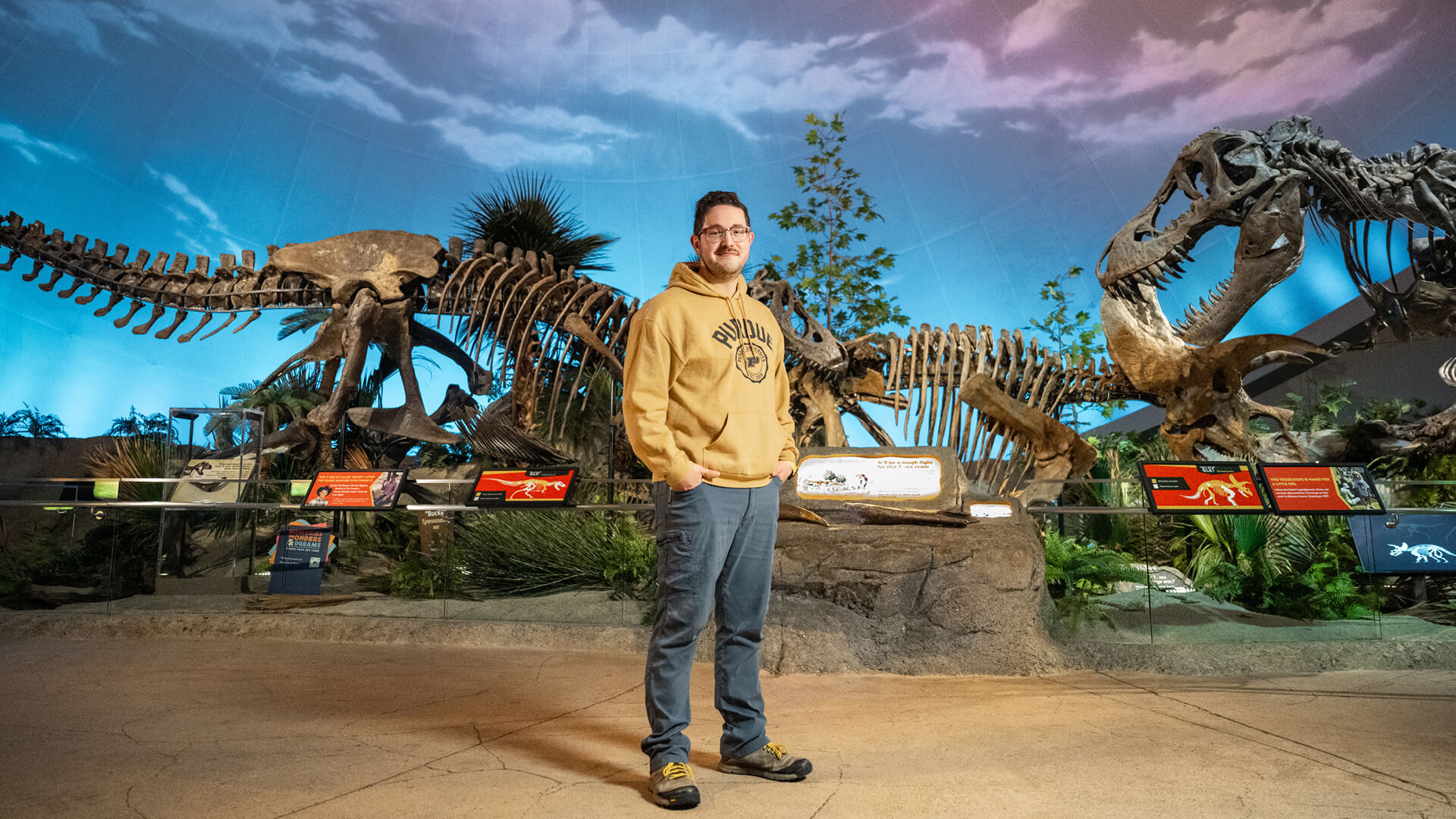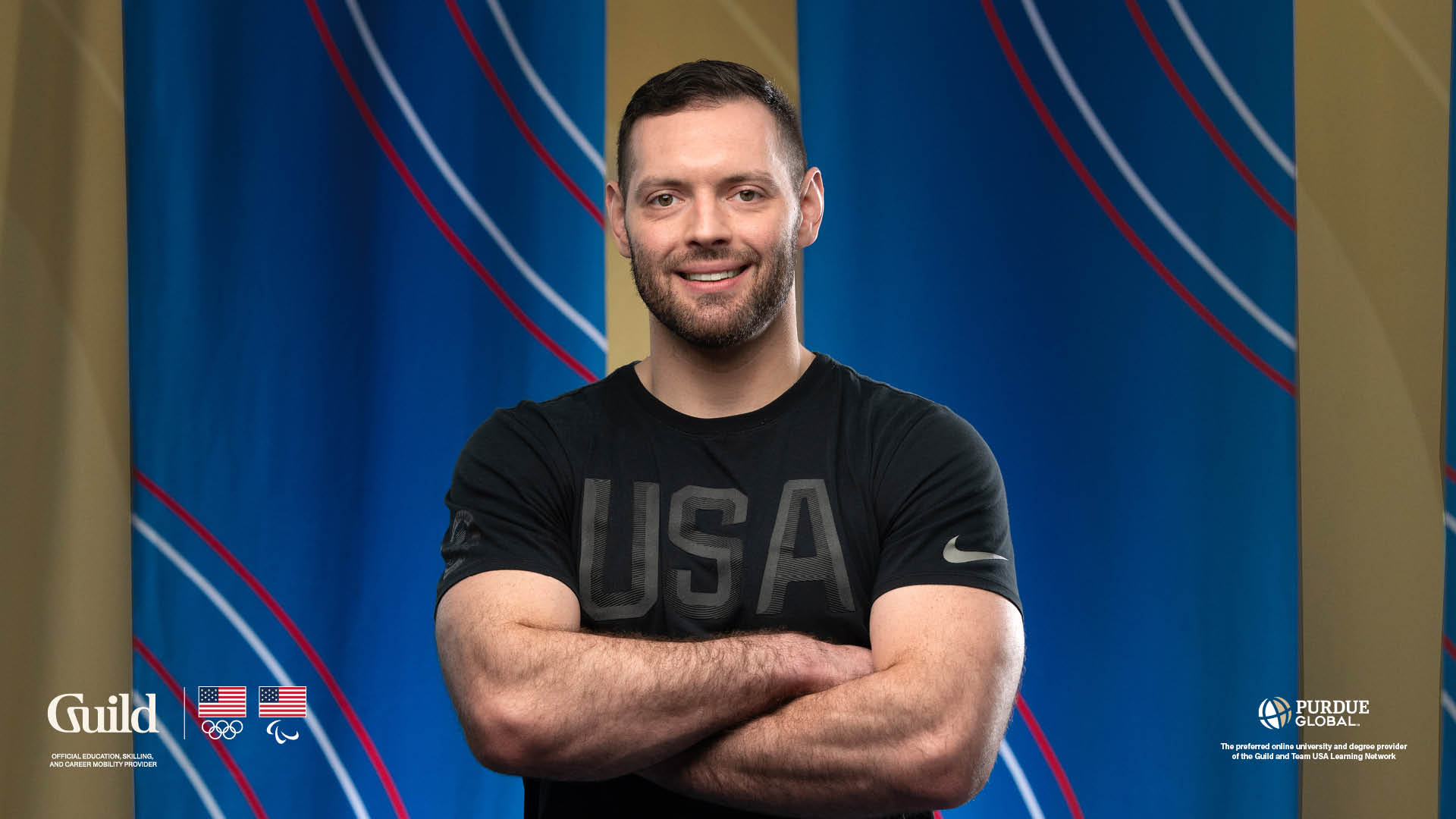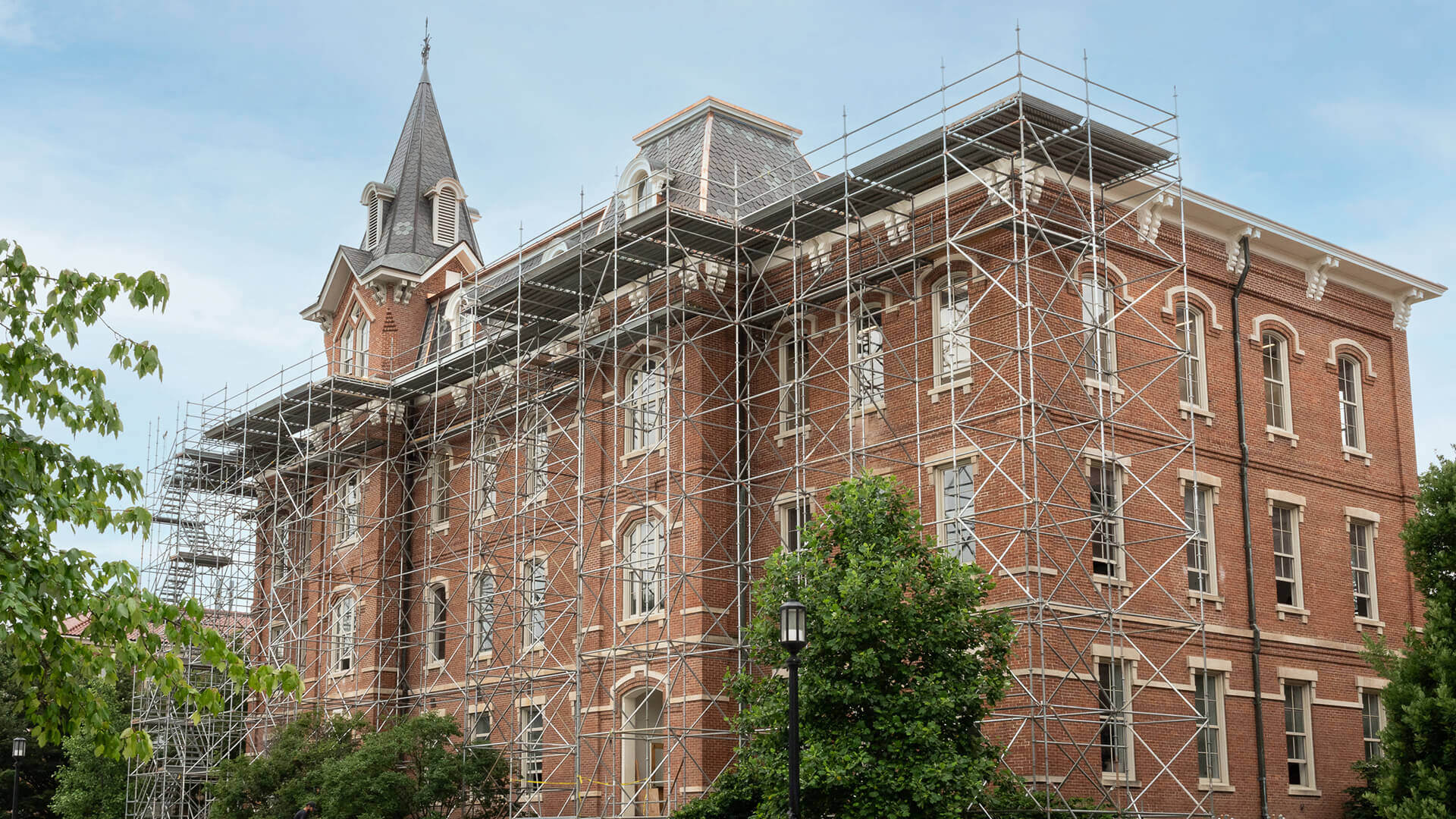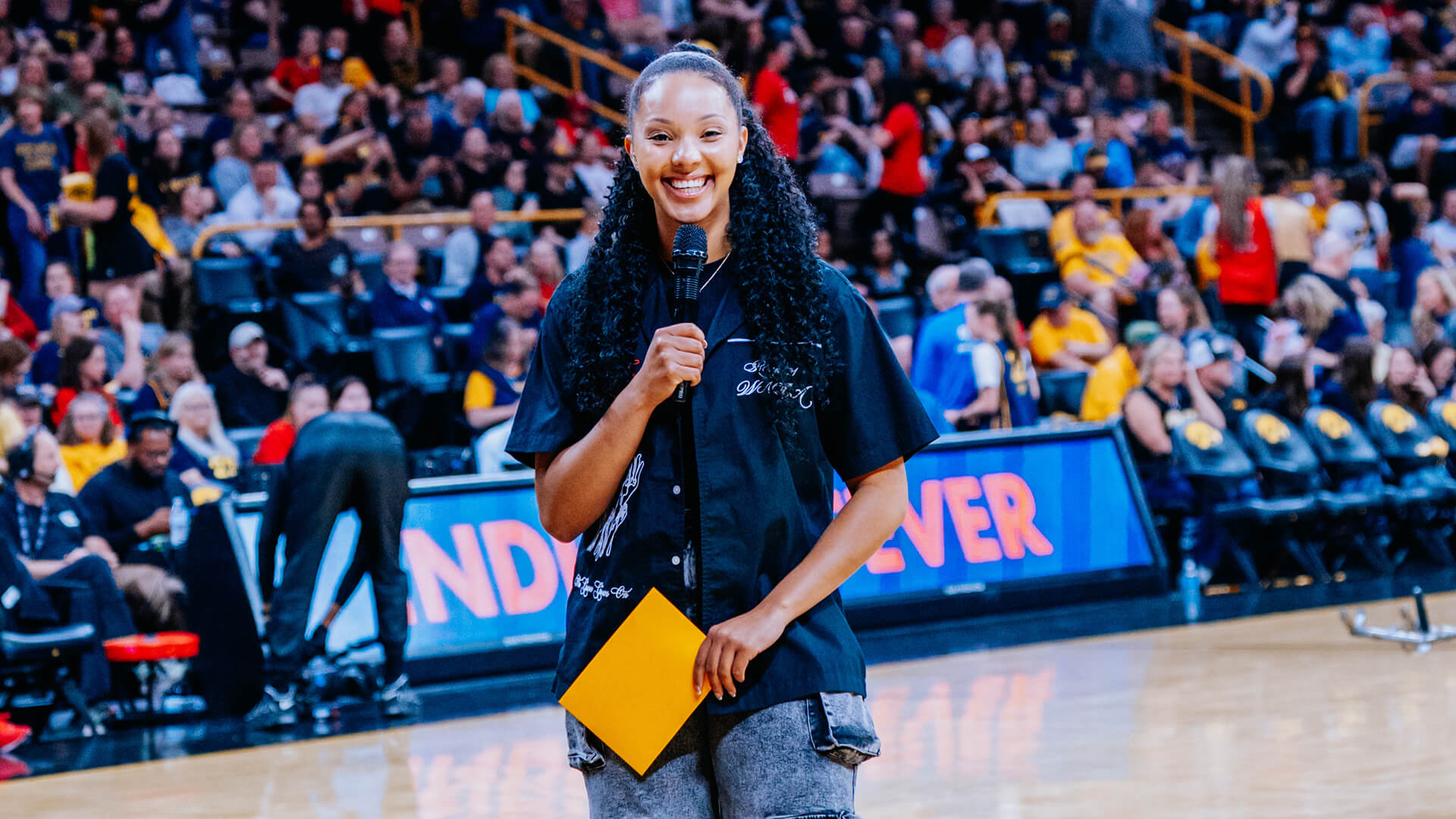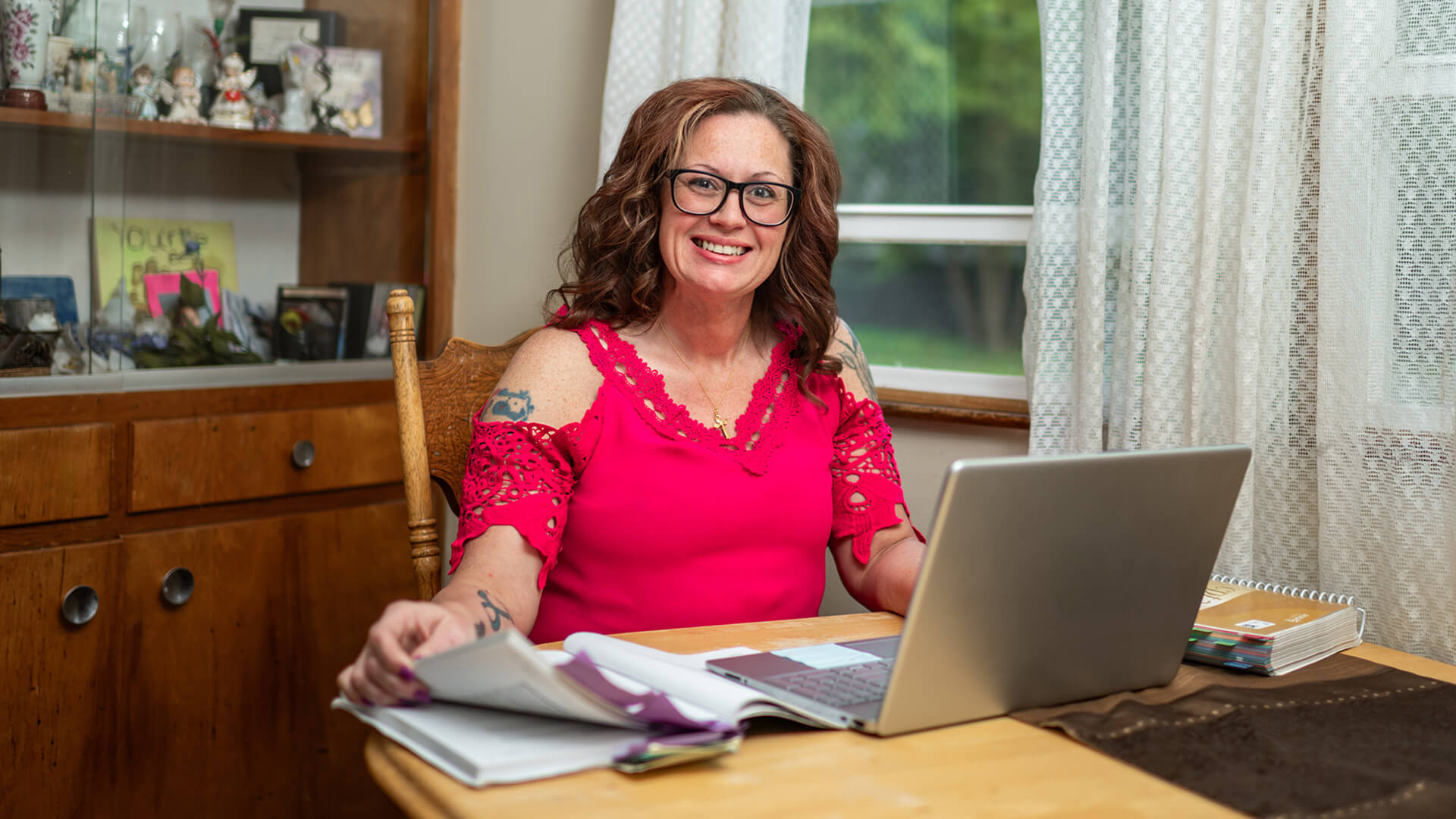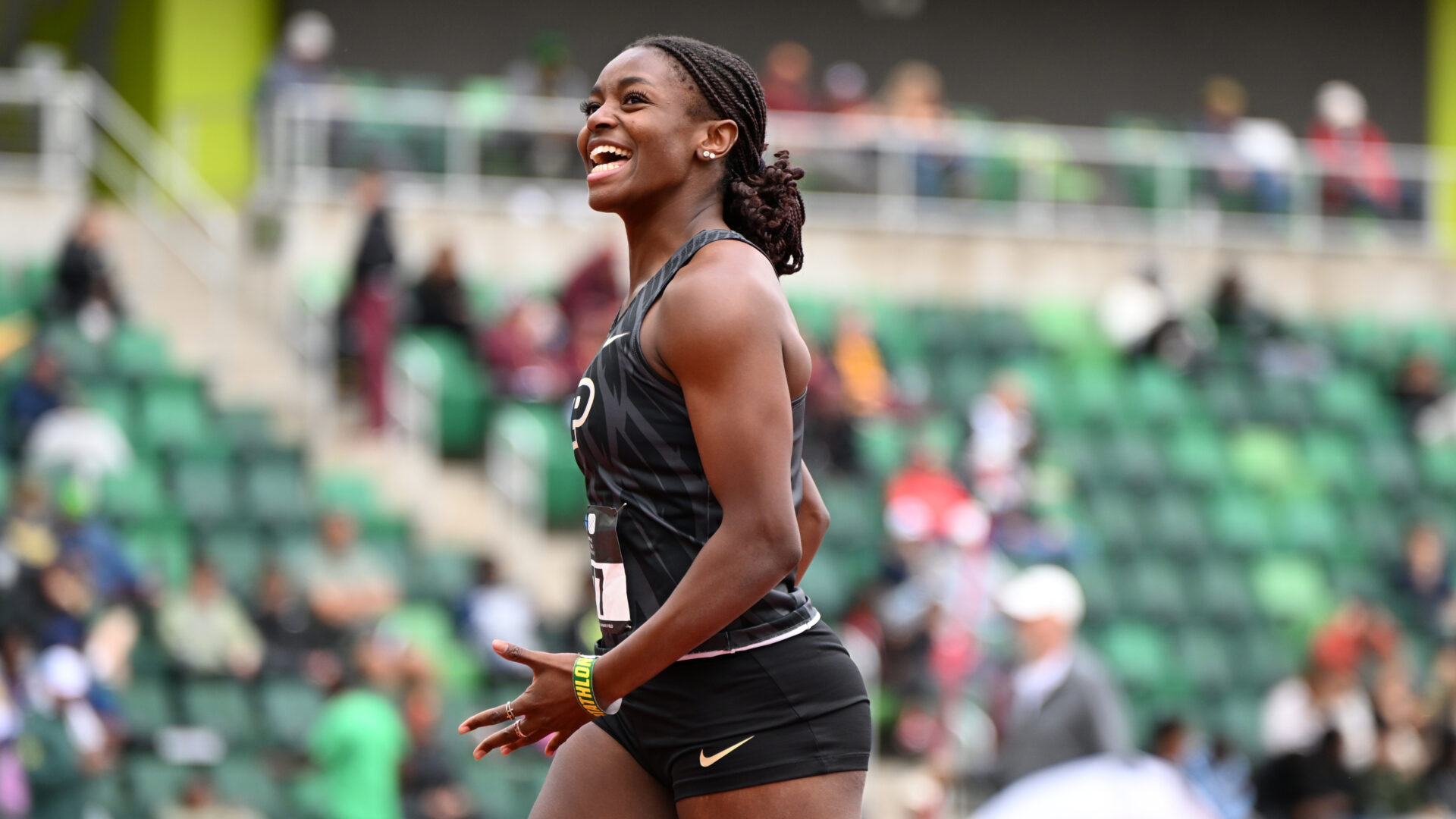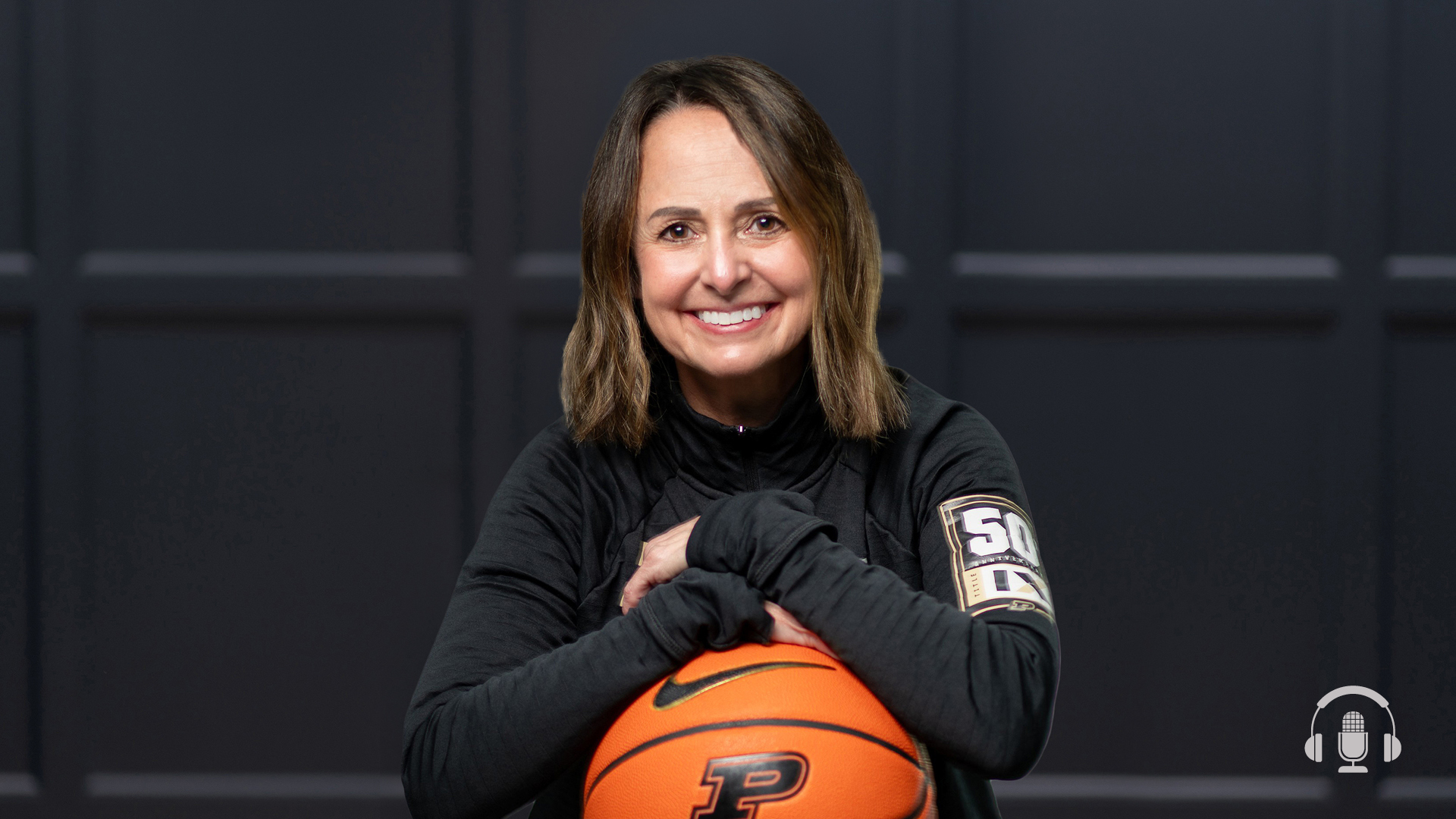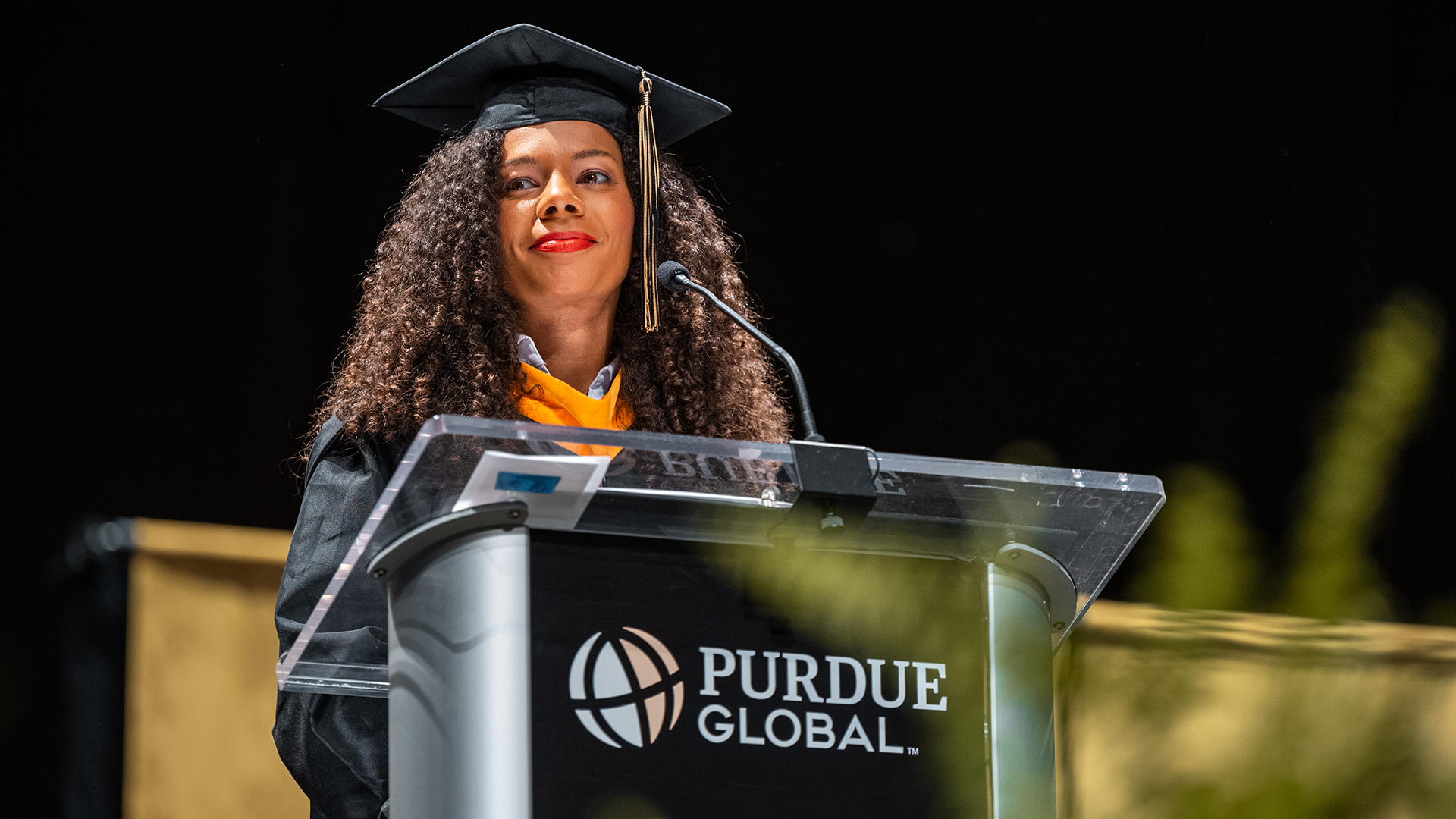Purdue alumna, a U.S. athletic trainer, savors second chance to participate in her first Olympics
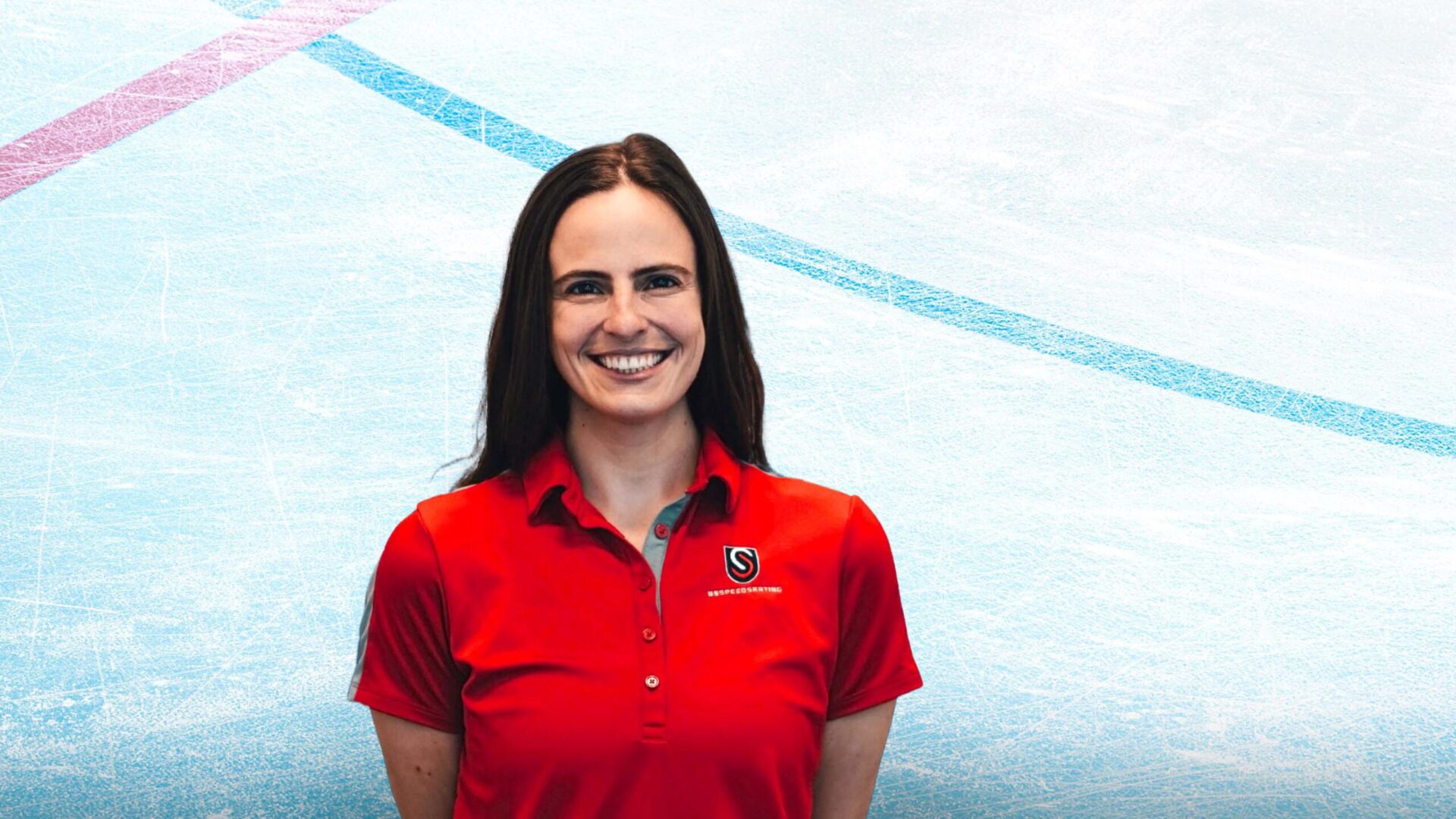
Anne Hinley (BS athletic training ’12) is fulfilling a career goal by working as an athletic trainer with US Speedskating at the Winter Olympics in Beijing. (Photo illustration by Emily Disinger, image courtesy of US Speedskating)
Anne Hinley landed her current job with US Speedskating in 2021 after working with the Chinese team prior to the COVID-19 pandemic
As a Purdue student, Anne Hinley felt awkward about revealing to athletic training classmates and colleagues that her career goal was to someday work at the Olympics.
“I wrote it down thinking, ‘Yeah, that would be cool.’ But then when I heard it out loud, I thought, ‘Oh, I don’t know if that’s possible. That seems silly,’” Hinley (BS athletic training ’12) recalls of the scholarship ceremony where she shared that goal. “But it was still always in the back of my mind that it was something I wanted to do.”
Hinley’s statement turned out not to be silly at all. It was prophetic.
A decade has passed since she graduated from Purdue, and the Johnsburg, Illinois, native has already held not one but two different jobs that would have taken her to the Olympics. Her current role as a medical manager and athletic trainer with US Speedskating has her working in the short track speed-skating crash pit at the 2022 Winter Games, helping American competitors like Erin Jackson and Brittany Bowe achieve their own Olympic dreams.
“Now here I am,” Hinley says, a few days after arriving in Beijing ahead of the Opening Ceremonies. “It’s just full circle now and very exciting.”
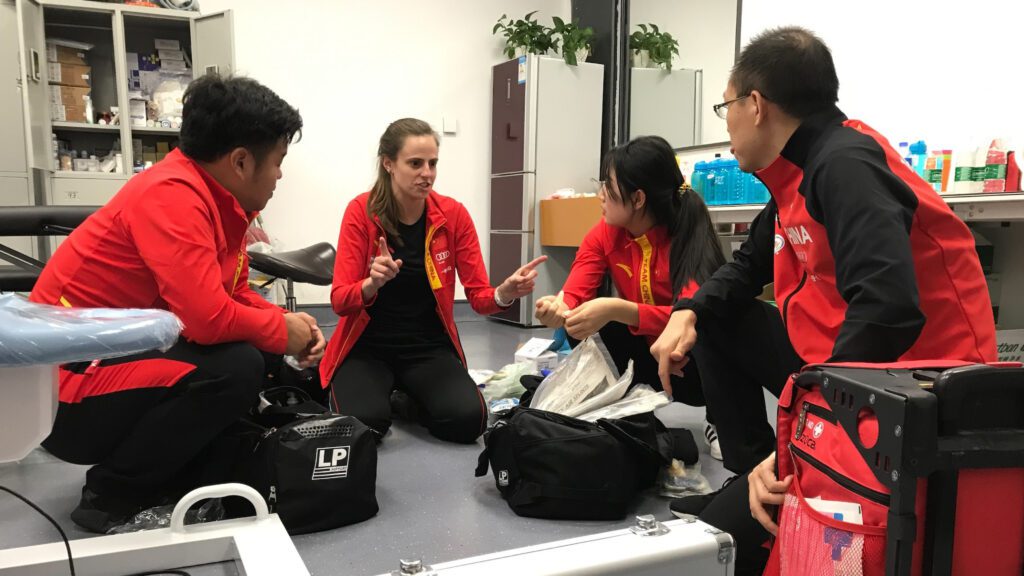
Changing direction during COVID
A few years ago, Hinley expected to work with a speed-skating team at these Games — only then it was with the host country and not with athletes from her home nation.
In May 2018, she accepted an athletic training position with the Chinese Olympic Committee and was assigned to the Chinese speed-skating team as its athletes prepared for the 2022 Winter Games. If the COVID-19 pandemic had not intervened, she might still be working with those athletes today.
Instead, she left the Chinese speed-skaters after an international competition in January 2020, as COVID fears rapidly began to spread around the globe.
“After the competition was over, I was supposed to go back to China, but I didn’t know what was happening,” Hinley says. “We were hearing how serious this was, and I decided to take emergency leave from work and went back home to the States. And then, like two weeks later, COVID hit the world. I wasn’t working for maybe a year.”
As the pandemic’s disruptions endured for weeks and then months, tentative plans fizzled to instead work with the Chinese golf team in the U.S. With her career at a standstill while live competitions were on hold, Hinley never could have imagined she would work at the 2022 Winter Games after all.
She had just started working at the Houston Astros’ spring training facility in Florida and at the franchise’s Dominican Republic baseball academy last year when she learned about the position with US Speedskating.
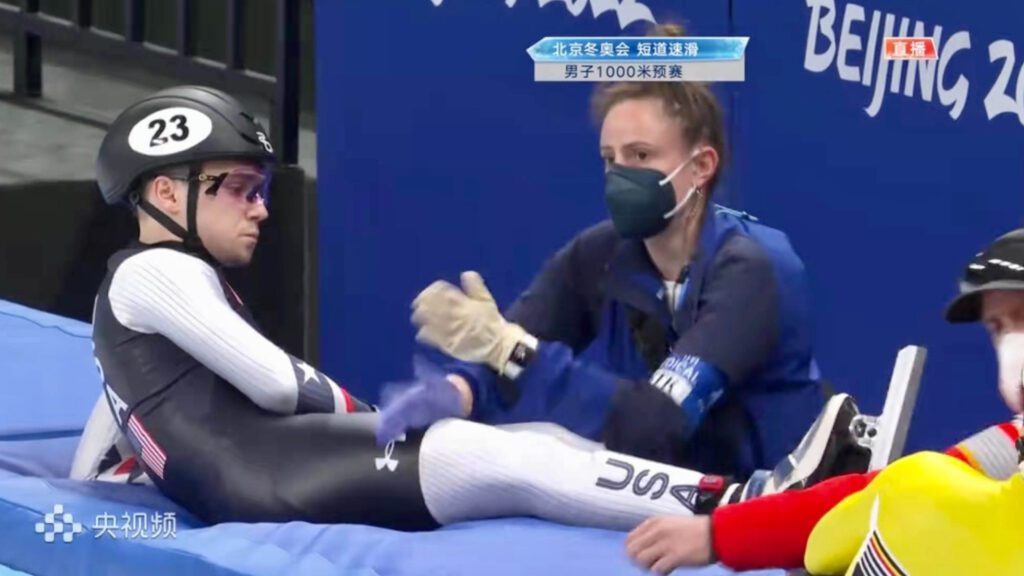
Hinley was enjoying her new role with the Astros, but the US Speedskating job was the type of position she had been building toward before COVID’s arrival. She couldn’t let this opportunity pass without applying. And then she got it.
“When I finally wrapped my brain around, ‘OK, I’m not going back to China anymore. I’m kind of done with that chapter,’ I thought I had closed the door on speed-skating,” Hinley says. “And then when this job popped up, it was like, ‘Wait, maybe I’m not done.’ It’s pretty crazy to me that I was still able to make it to the Olympics, just with a different team, and it’s actually my home country.”
Living in the bubble
COVID concerns still linger as the International Olympic Committee and local organizers attempt to stage the competition while limiting factors that might contribute to virus transmission. Hinley is among the 60,000 athletes, officials, media and volunteers living in the Olympic “bubble,” where mask wearing and daily COVID testing are compulsory and no one is permitted to venture outside of their designated areas.
The conditions are unique to say the least. If nothing else, living in the bubble will give Hinley a memorable story to tell when she reminisces about her first Olympics.
“It changes the experience a little bit, but with this being my first Games, I still want to experience it for the way that it is and still be appreciative that I’m here. I will explore what I can and still look at the positive side,” she says.
Looking at the positive side should not be too difficult. Hinley has worked at international competitions like World Cups before. But the Olympics are a different animal — a reality that truly set in when she and the team arrived at the airport to depart for Beijing.
“Delta (Air Lines) was very nice and had this big thing set up for us and there was media there,” Hinley says. “That was like, ‘Wow, you don’t get this with any other competition!’”
Purdue experiences
Hinley’s path to Beijing started at Purdue, where she built significant practical experience that would propel her into a graduate program at Ithaca College and then into the working world.
She was initially reluctant to become a Boilermaker, however.
As a prospective student, Hinley thought she might be uncomfortable at such a big university. It was only after learning about Purdue’s proud tradition in the field of athletic training that she decided to become a Boilermaker.
“I ended up going to a college visit day and learning about the program, and that’s when I first heard about its history and said, ‘OK, this might be the place where I need to go,’” Hinley says.
Purdue is where the legendary William E. “Pinky” Newell served as head athletic trainer from 1949-78 and where his fellow National Athletic Trainers Association (NATA) Hall of Famers Denny Miller and Larry Leverenz also became leaders within the profession.
Newell is widely recognized as the father of the NATA, co-founding the organization and serving as executive secretary for 12 years. He also worked as an athletic trainer at three Olympics (1976, 1980 and 1984) and coordinated all athletic training coverage for the 1984 Summer Games in Los Angeles.
It was in accepting an athletic training scholarship named after Newell that Hinley publicly expressed her desire to follow in his footsteps and work at the Olympics. She advanced along that path in large part because of the experience she gained while working with Purdue’s football, cross country and track and field squads, and especially the year-round duties she fulfilled with the Boilermakers’ 2012 baseball team as a senior.
I learned so much and I was able to work with the team year-round, so I was getting experience in-season and offseason in what my role is like in both those times of year
Anne Hinley
Athletic trainer, On working with the Purdue baseball team
“The coaches, the athletes and my certified athletic trainer that I worked with were fantastic,” Hinley says of her experience with the baseball program. “I learned so much and I was able to work with the team year-round, so I was getting experience in-season and offseason in what my role is like in both those times of year. It also didn’t hurt that our baseball team were Big Ten Tournament champions and conference champions that year.”
A long-term home
Hinley dealt with more than her share of uncertainty over the last few years, when COVID’s emergence created massive upheaval within her line of work. But after enduring that temporary setback, she is thankful to have found a job that so closely aligns with the role she envisioned as an ambitious Purdue student.
Maybe these are her first Olympic Games, but Hinley hopes to have finally found a long-term professional home where they won’t be her last. “I want to stay here as long as I can. I think I can grow here,” Hinley says of her job with US Speedskating. “Even though I’ve been with the job for a few months now, I think I’m still learning about it and how I can improve as a clinician and as a manager and as a supervisor. I hope I’m going to stay here for a while.”
